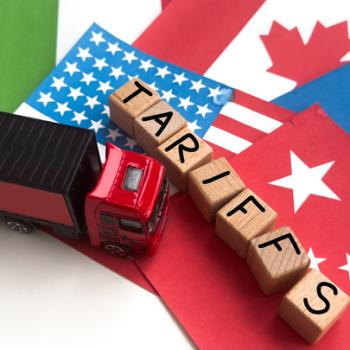What must it be like to see the hearts of men? To see them 24/7—to constantly know the darkness of our motives, our anger and pride? And more than that—perhaps worst of all—to always, always know whatever evil we may be doing: to know every wound inflicted, every lie told, every act of cruelty or violence, every heart crushed and every conscience seared.
I am so grateful that the burden of this unfathomable omniscience does not fall on me. Now and then we are given glimpses of horror from which we cannot avert our eyes, but God sees every horror, and knows and loves everyone involved in it. I don't know how He does it. It's a good thing He's God, and I'm not.
Two particular horrors have come to light in the last few weeks that force us to confront the depravity of our species. One is a threat from federal authorities against the state of Oklahoma, which has permitted media coverage of the handling of certain child-abuse cases by child-welfare workers. Several children have died of abuse under custody arrangements that were approved—after warnings and previous abuse—by the state's Department of Human Services. In those cases, and a few in which children almost died, information on case management has been made public.
Now a regional official with the U.S. Department of Health and Human Services has threatened Oklahoma with a cut-off of federal funds unless the state stops releasing information on the public-agency handling of fatal child-abuse cases. This is clearly not to protect the family members or abusers involved; their identities and actions are already public and will be made more so through the court system, when they are charged with crimes or deposed as witnesses. It is instead to protect the child-welfare system from public scrutiny.
State lawmakers are understandably indignant about this threat, pointing out that public concern has been indispensable to making policy reform a priority. But the most powerful arguments for ensuring openness and scrutiny are the children themselves, and the photos commemorating tiny, helpless creatures with bruises, burns, broken limbs, and a haunted but hopeful look in their eyes. What society, seeing their plight, could allow it to be papered over and forgotten?
Yet what people can stand to know too much about it? As a species, we are not designed to think about evil and sorrow as constantly as they erupt around us. It is impossible, in fact, to grasp the magnitude of the second horror demanding our attention. Imagination fails: we can't mentally inhabit the world of "death enforcement" created by the one-child policy of China. There is no way for those of us living far away to truly understand the sheer oppressive ghastliness of it.
After the dramatic episode in early May involving Chinese pro-life activist Chen Guangcheng, who was released into Chinese custody by the U.S. embassy in Beijing, Congress held a second hearing this week on the terrible methods by which the one-child policy has been enforced. For advocating respect for life in this culture of death, Chen has been subjected to beatings, torture, and imprisonment, and his whole family is in constant jeopardy. He was able to participate by phone in the Congressional hearings this month, which is remarkable enough in itself. But more remarkable still is the testimony of Chinese women who have been victimized and abused by the one-child policy.
Consider Mei Shunping's story:
Mei was married in 1981, and gave birth to a son two years later. At the time, women were supposed to automatically get an IUD implanted or husbands were to be sterilized after the first child's birth. Doctors refused to implant the IUD in Mei, though, for medical reasons.
"Without the IUD, I became the prime target for surveillance by the factory's Family Planning Commission," Mei said. "From 1983 to 1990, because of the one-child policy, I had to have five abortions."
"My factory's Family Planning Commission used three levels of control: at the factory level, in the factory clinic and on the factory floor. If one worker violated the rules, all would be punished. Workers monitored each other . . . Colleagues were suspicious and hostile to each other because of the one-child policy. Two of my pregnancies were reported by my colleagues to the Family Planning Commission," she said.
"When discovered, pregnant women would be dragged to undergo forced abortions—there was no other choice. We had no dignity as potential child-bearers . . . Every month during their menstrual period, women had to undress in front of the birth planning doctor for examination. If anyone skipped the examination, she would be forced to take a pregnancy test at the hospital. We were allowed to collect a salary only after it was confirmed that we were not pregnant."

-350x350.jpg)



